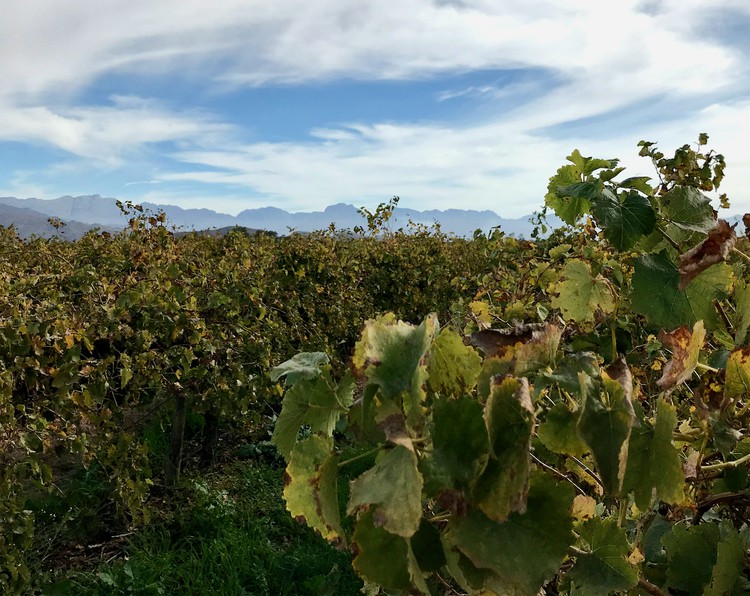Workers in Cape wine industry face “job massacre”
Over a dozen wine farms are taking government to court over the new blanket ban on alcohol sales
The wine industry has already suffered massive job losses due to the restrictions on alcohol sales under Covid-19 regulations. The renewed ban will put thousands more out of work, say wine producers. Photo: Steve Kretzmann
- Wine producers already reeling from previous bans on alcohol warn that the new total ban is the nail in the coffin for them.
- They doubt that table wine sales contribute much to medical emergencies from alcohol abuse.
- Workers stand to lose not only their jobs but their homes on farms.
Cape wine producers are warning of a “job massacre” because of the renewed ban on alcohol sales.
In an urgent application launched in the North Gauteng High Court on Monday, the producers want wine sales to be distinguished from the sale of other alcohol, such as beer and spirits.
They say the initial hard lockdown almost drove them out of business. The “revised” lockdown, when only “off consumption” alcohol sales were allowed between Monday and Thursday, did little to restore the industry which is facing job losses among those who work the land and run the wineries and their restaurants.
Now, the total ban on alcohol sales announced by President Cyril Rhamaposa on 12 July came as a “complete shock”, promulgated without any public input, they say.
Francois Rossouw, CEO of Southern Africa Agri Initiative (SAAI), a non-profit network for farmers, said court papers to challenge the banning of on-site consumption had already been prepared and were to be filed with the court on Monday 13 July, but then the complete ban was announced on the Sunday night and the application had to be redrafted.
The application is supported by 13 wine farms and co-operatives.
“We bring the application in the interests of thousands of people involved in and employed by the wine farming industry, the hotel industry and the restaurant industry, in the public interest,” Rossouw says in his affidavit.
“The rights of the applicants and workers should be distinguished from the interests of persons involved in other alcohol producing industries, such as beer and spirits.”
He said the continued ban on wine sales would result in a loss of thousands of jobs on wine farms, “economic losses and damage that South African simply cannot afford”.
“The wine farm industry cannot survive the devastating impact of a total ban on local wine sales for the next four to six months. Industry cash flow is under severe pressure. The majority are no longer in a position to pay 100% of their payroll commitments.”
“Many vulnerable workers could also face further hardships because their tenure on farms is linked to continuous employment.”
In their affidavits, wine farmers say they have already had to retrench employees and many more jobs are now on the line.
Jean Engelbrecht, Managing Director of Rust and Vrede Wynlandgoed, said the company employed 43 workers in its vineyards, wineries and tasting room, and another 131 at its restaurants. “We are presently not in a position to provide employment to 108. They are without income.”
Charles Back, MD of Fairview Investments, said the company could now only accommodate 120 of 254 workers and even these were on reduced salaries.
“The ministers appear to labour under a serious lack of understanding and appreciation of the uniqueness of the culture of wine making and wine sales. This is not a culture which leads to alcohol abuse. I doubt there is any tangible or plausible evidence that the abuse of table wine contributed significantly to the medical emergencies found to pose a threat of overburdening the country’s health system,” he said.
The wine producers argue that “less restrictive” means ought to have been considered rather than an outright ban. These include limiting the quantities of wine which can be bought and sold and the strict enforcement of a curfew.
The application, which cites the ministers of Cooperative Governance and Traditional Affairs, Tourism, Trade and Industry, the Cabinet and President as respondents, has been set down for 18 August.
Support independent journalism
Donate using Payfast

Don't miss out on the latest news
We respect your privacy, and promise we won't spam you.
Next: Prisoners at Brandvlei starved of water when pump failed
Previous: SASSA not processing new disability grant applications during the pandemic
© 2020 GroundUp. This article is licensed under a Creative Commons Attribution-NoDerivatives 4.0 International License.
You may republish this article, so long as you credit the authors and GroundUp, and do not change the text. Please include a link back to the original article.

